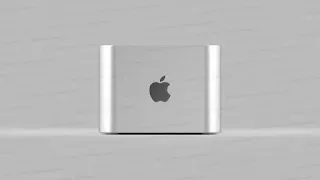After successfully overcoming the difficulties of 2020, it seems that Apple is planning to continue its successes by launching a new series of its flagship devices, and this time it seems that the Mac devices will be the star of its next show event.
According to new leaks from Jon Prosser, which is usually fairly accurate, Apple is preparing of lunch some when this year a new completely redesigned iMac, and a small-sized version of the Mac Pro.
The new iMac for this year is expected to have a new mixed design between the Apple Pro Display XDR, and the iPad Pro. It will come (as shown in the picture above) with an edge-to-edge display with slimmer bezels, and an Apple Silicon chip, and for the first time since a long away, the new iMac 2021 will come in five colors mirrors those found on the fourth generation of iPad Air: black, white, green, blue, and rose gold.
Prosser said that the colors are not definitive, and Apple may change them before launch and that he hadn't seen the back of the device, so the ports in the mockups are based on those in the iMac 2020.
Jon says also that Apple is working on a new smaller Mac Pro device powered by the Apple Silicon M-chips described as a G4 Cube-like concept with a compute unit on the bottom and a heat sink on top that looks like 3 to 4 Mac minis stacked on top of each other.
It is not clear when Apple will launch these two devices, and whether they will be launched at the same time or not, despite rumors that Apple is preparing for a new virtual event next month, but it will likely focus on the new iPad Pro, iPad Mini and AirTags, so there is no information about a specific launch time for these Macs.
Tags:
Apple




